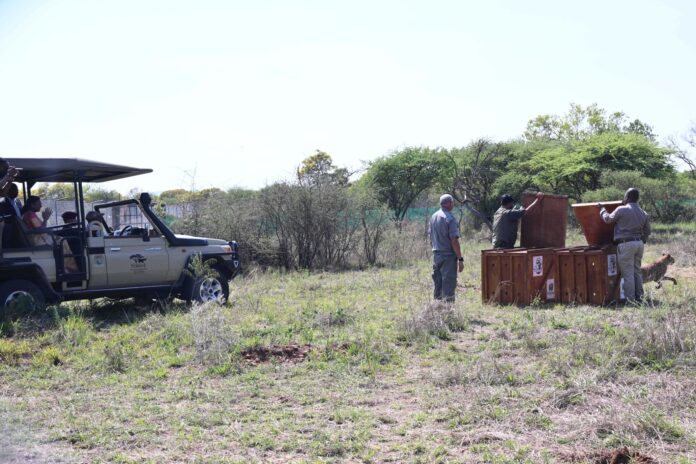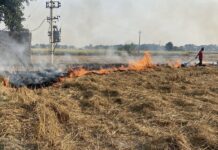New Delhi/Gaborone: India’s ambitious Project Cheetah received another boost, as President Droupadi Murmu symbolically received eight cheetahs from Botswana during her state visit to the southern African nation.
The move underscores growing international collaboration to restore the world’s fastest land animal to Indian grasslands, more than seven decades after it was declared extinct in the country.
The cheetahs, a mix of adults and sub-adults, both male and female were handed over by Botswana’s President Duma Gideon Boko at the Mokolodi Nature Reserve, near Gaborone.
The two leaders jointly witnessed the release of two cheetahs into a quarantine pen, marking a symbolic transfer of wildlife heritage between the two nations.
The animals will undergo a quarantine process in Botswana before being airlifted to India, where they are expected to join others at Kuno National Park in Madhya Pradesh under Project Cheetah, the world’s first intercontinental large-carnivore translocation programme.
India’s cheetah reintroduction effort began in September 2022, when eight cheetahs arrived from Namibia. They were followed by 12 more from South Africa in early 2023.
With the addition of Botswana’s eight, India continues to strengthen its partnerships across southern Africa, the species’ last stronghold to rebuild a sustainable population in India’s grasslands.

President Murmu thanked Botswana for its support, assuring that India would take “good care” of the cheetahs and build on shared conservation values.
President Boko described the transfer as a “gift of cooperation and hope,” helping to revive a species that vanished from Indian soil more than 70 years ago.
Progress and Challenges in Project Cheetah: Since its launch, Project Cheetah has made steady but complex progress. India currently has 27 cheetahs, including 16 born on Indian soil. Despite setbacks, with 19 deaths reported due to natural causes, heat stress, and conflicts, the project has achieved a net gain of seven cheetahs over the initial number imported.
Experts note that while mortality rates are expected in early phases of such reintroduction programmes, the project’s success lies in the natural breeding that has occurred in Kuno National Park. So far, 26 cubs have been born in India, offering hope for a self-sustaining population in the future.
To ensure the species’ long-term survival, authorities are diversifying habitats beyond Kuno. A few cheetahs have already been relocated to Gandhi Sagar Wildlife Sanctuary, and more sites are being prepared in Rajasthan and Madhya Pradesh to reduce overcrowding and inbreeding risks.
Wildlife officials say the next phase of the project will focus on establishing meta-populations interconnected groups across multiple reserves mirroring successful models in southern Africa.
Beyond conservation, Project Cheetah represents a broader vision of ecological restoration. The reintroduction of this apex predator is expected to rejuvenate grassland ecosystems, enhance biodiversity, and strengthen India’s global image as a leader in wildlife conservation.






